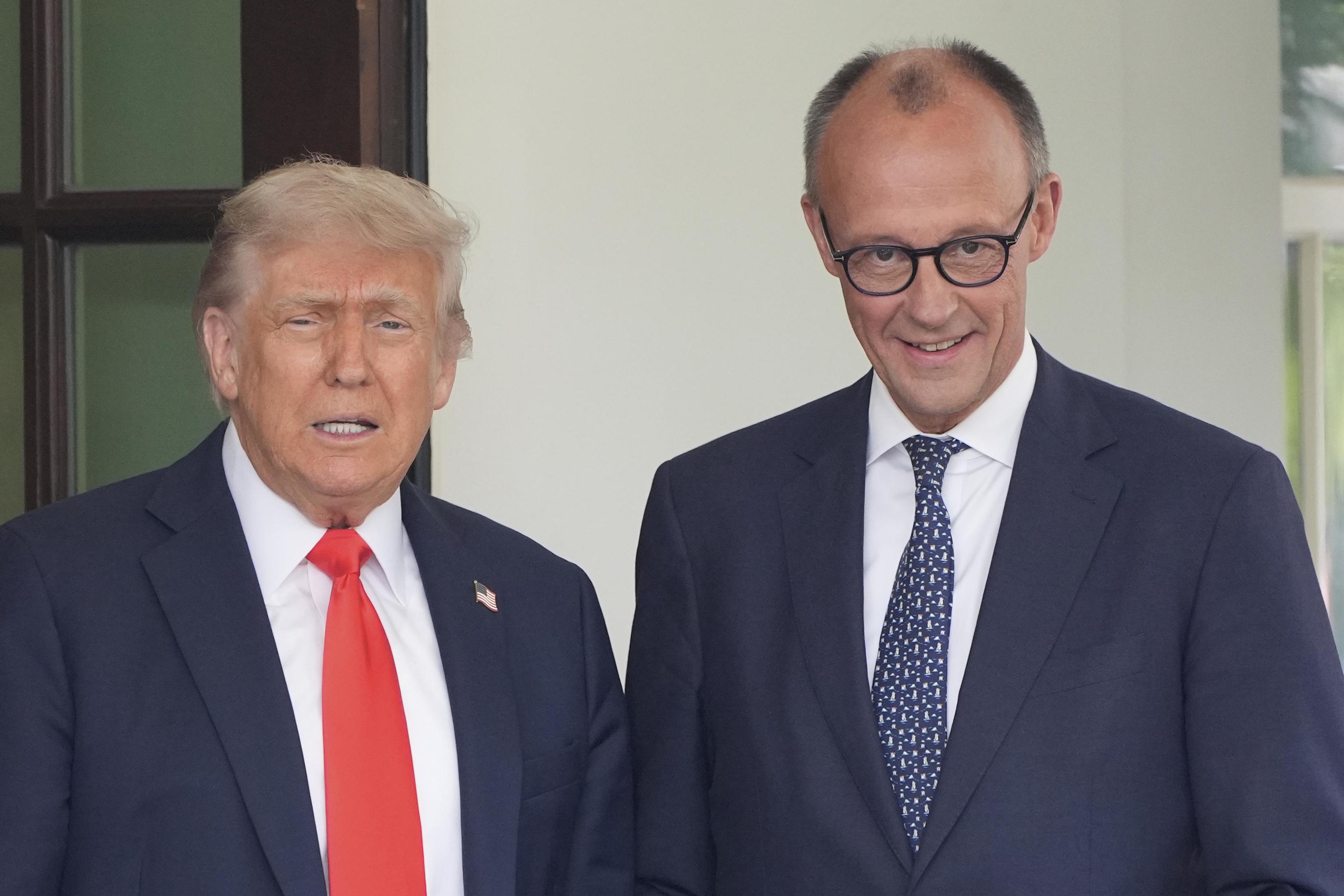In the last four and a half months, Donald Trump has set up all kinds of traps for the world's top leaders. He invites them to the White House, to his office, surrounded by his top advisors and allows the press in. The White House press pool is much more aggressive than European or Asian prime ministers are used to. They shout questions, sometimes several at once, in a room with difficult echoes, among cameras, flashes, and often in a language that is not the guest's native language. And in that environment, the trap begins.
Mixing national policy issues with reproaches, attacks, and disdain. Volodimir Zelenski experienced this, in an act of unparalleled lack of diplomacy. The South African president also experienced it when Trump turned off the lights to show a video of white farmers in his country denouncing a "genocide" and cornering him. And to a lesser extent, Emmanuel Macron, Keir Starmer, and Marc Carney of Canada have also endured it. They are forced to listen to all kinds of remarks, insinuations about national and international politics without knowing how to react: to respond, to refute, to contradict, or to deny. There is no good strategy. If they remain silent, they will be seen as cowards in their countries. If they raise their voices, they risk anger and a scolding in front of the cameras in which only Trump feels comfortable. Most opt for something in between: smiles, compliments, perhaps some important clarification (about Ukraine, the EU, Russia, or tariffs) but without incidents. And gradually, they are defining a style together.
This was evident on Thursday in the Oval Office when Trump welcomed German Chancellor Friedrich Merz. Reports from Berlin in the past week indicated that the conservative leader was carefully preparing for his visit. He arrived in Washington with the birth certificate of Trump's grandfather, Friedrich Trum, born in Bavaria in 1869. A way to link the two countries, but also a subtle message about immigration and U.S. history, hours after the Administration resurrected a policy from his first term: travel bans for more than a dozen nationalities.
Merz also mentioned that his previous visit to the White House was as a teenager, with Ronald Reagan as president, a nod to the Republican establishment. He even noted that tomorrow marks the anniversary of D-Day, the Liberation of Europe "and the liberation of my country from the Nazis," praising the work of U.S. troops, at a time when Berlin and Brussels fear that Trump wants to withdraw his soldiers and close important bases in Germany. In this way, he created another connection and introduced the issue, getting the president to say that he has no intention of doing so. "No, I think they want them to stay... the relationship is very important to us," he said.
Germany has come out more than alive from this examination. Trump criticized Angela Merkel's immigration policy, something that will not offend Merz, who constantly clashes with her on that issue. They did not clash on trade and tariffs, the issue that should have been the main focus of this trip and that for the first time was completely sidelined, overshadowed.
The chancellor did not seem bothered when Trump joked about increasing defense spending, but not too much, with another reference to the world wars. Or when he said that D-Day "had not been a good day for his country," something that Merz countered, stating the opposite, that it was a great day. Not even when Trump lied about NordStream II and its role in the construction of a gas pipeline that was destroyed in 2022.
Trump, who was more concerned today about his ongoing feud with Elon Musk and the future of his tax law, was much more restrained, insisting that he greatly respects Germany and the chancellor. He listened without getting involved in the repeated mentions of the need to help Ukraine and to curb Putin, and even when Merz gently corrected the president by saying that Ukrainians are only defending themselves, and unlike the invader, "they only attack military targets, not civilians, not the private sector, not energy infrastructure." Trump did not take sides, comparing the war between Russia and Ukraine to "two little kids fighting like crazy" in a park and suggesting that it would be better to "let them fight for a while," but he also did not object. In response to the chancellor's position, he insisted that he was "in favor of stopping the killings, that's what I'm dedicated to."
Merz was also fortunate. He, who took office last month, told reporters before the meeting that they would discuss Russia's war in Ukraine, tariffs, and NATO at the meeting, but admitted that he did not expect major breakthroughs.
In the past, he has been very critical of Trump, saying that the relationship with Europe is broken, that the U.S. is no longer a reliable ally, and that the Old Continent must take charge of its own security. But none of that came up. On the contrary, it was a very favorable day.
The president was in an acceptable mood, with other concerns, and most of the questions from journalists were about issues unrelated to the guest. Hours later, he also had a chat with Chinese President Xi Jinping, which is another priority for the German economy. His good English, praised by Trump, helped. He did not try to overshadow his host, did not pretend excessive closeness, or force the situation, demonstrating that he was indeed well-prepared. He has worked extensively with the U.S. in his career, knows what the sensitive issues are. And what to praise Trump for, stroking his ego. A good roadmap for those who come after.
